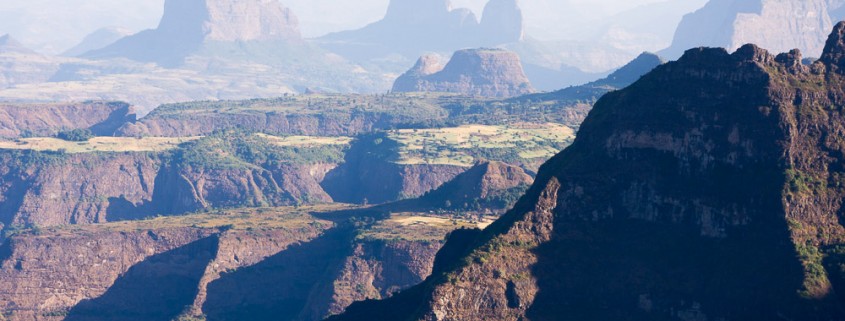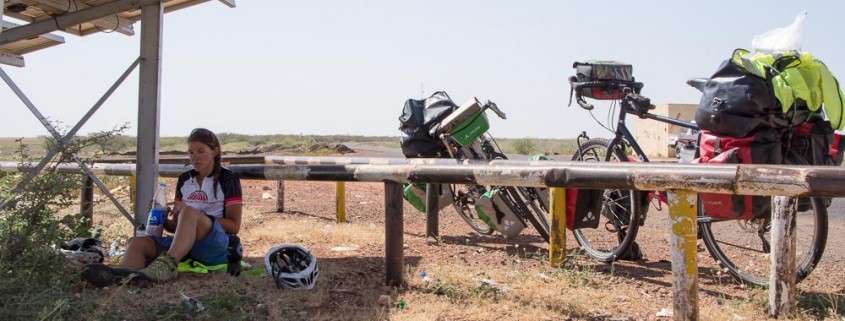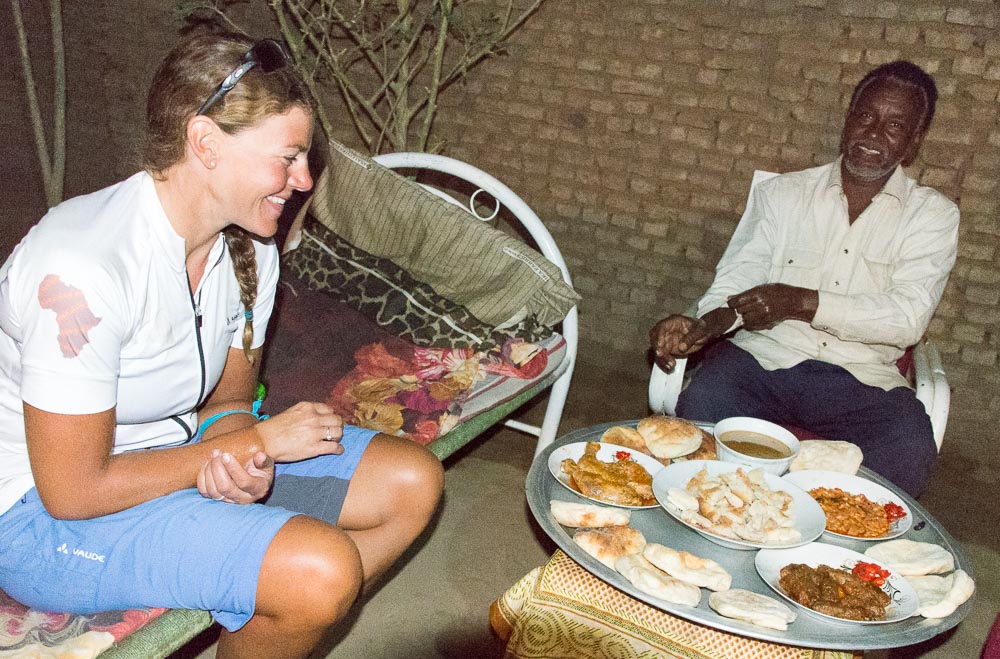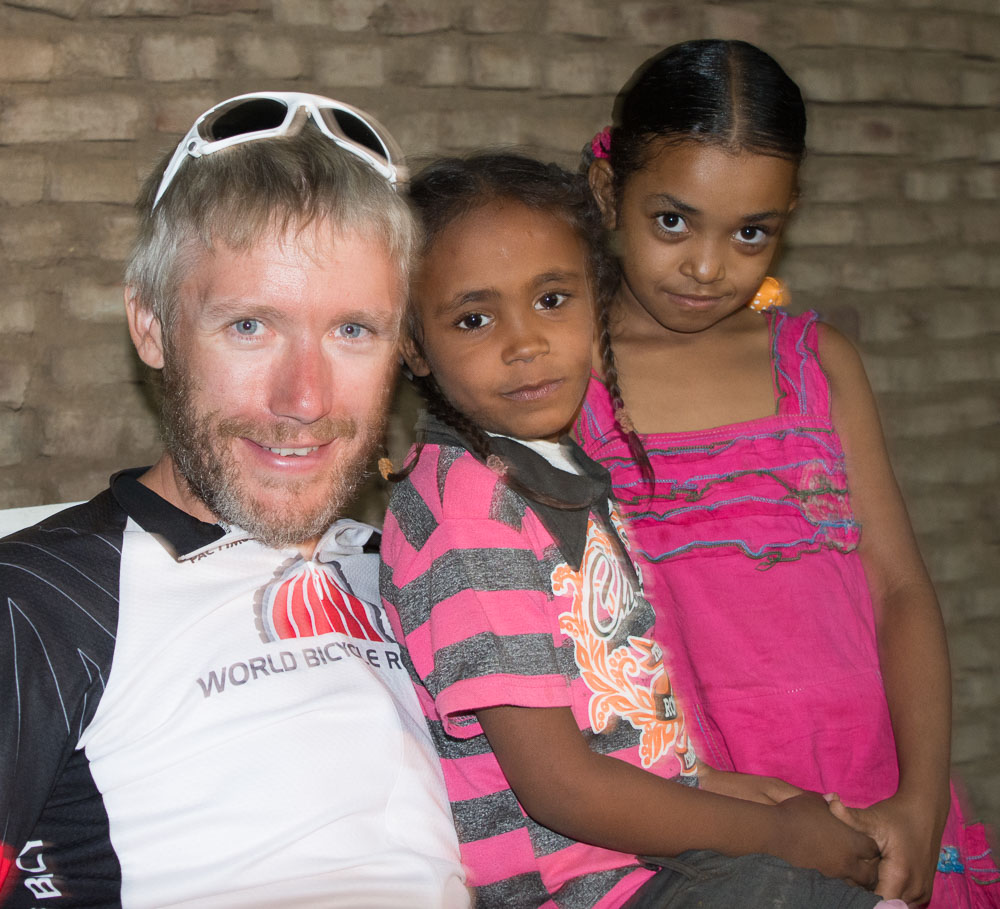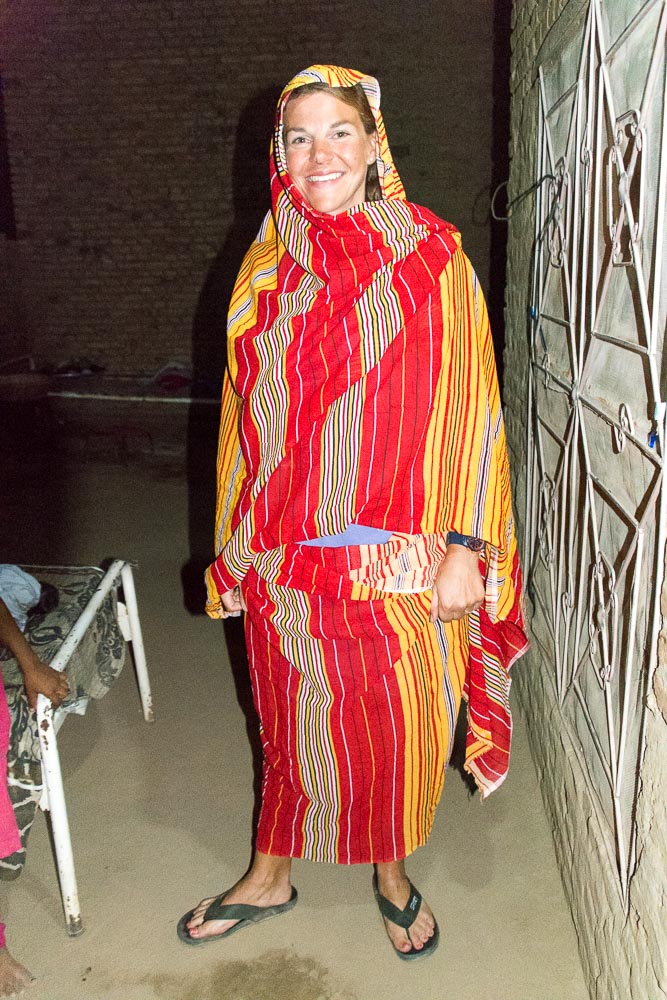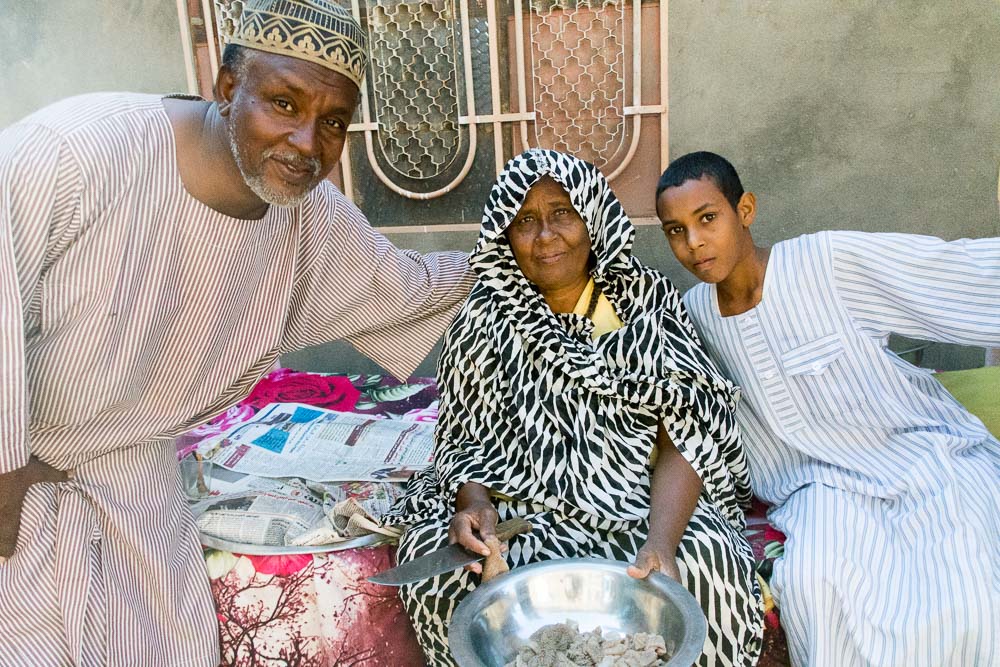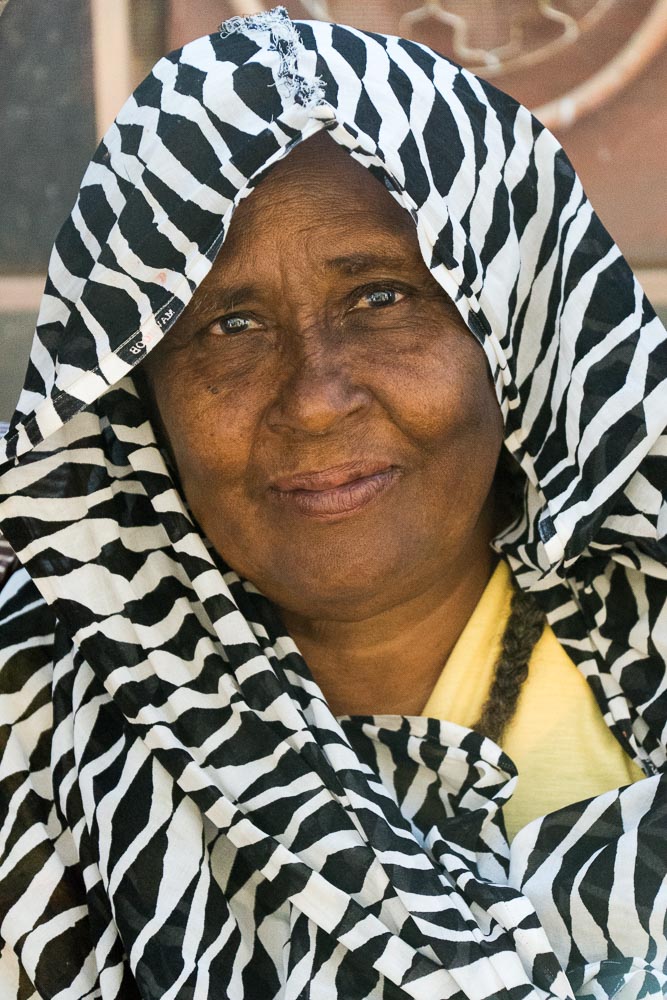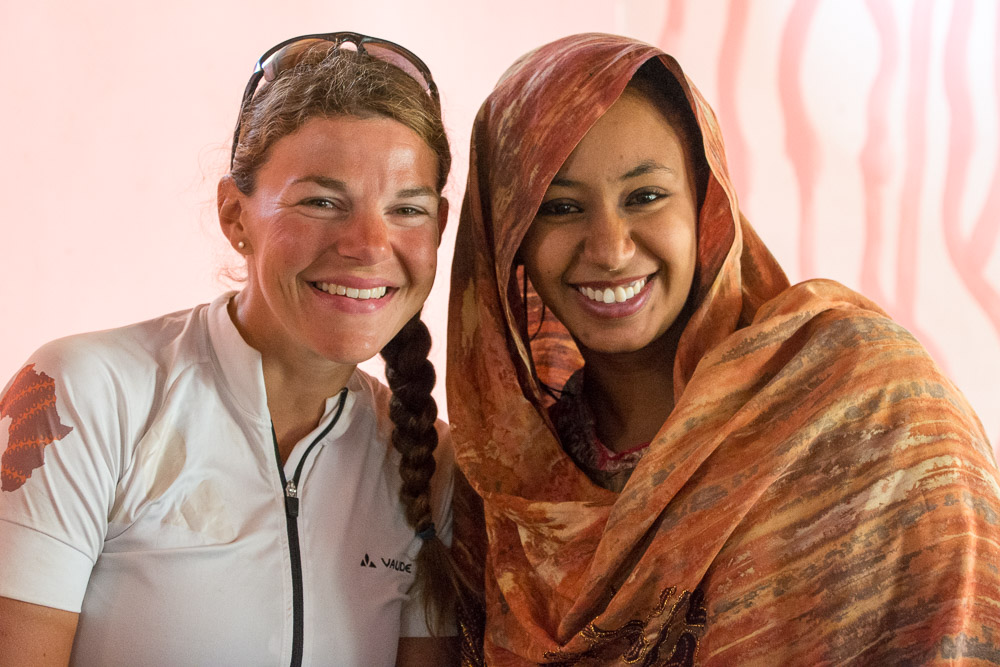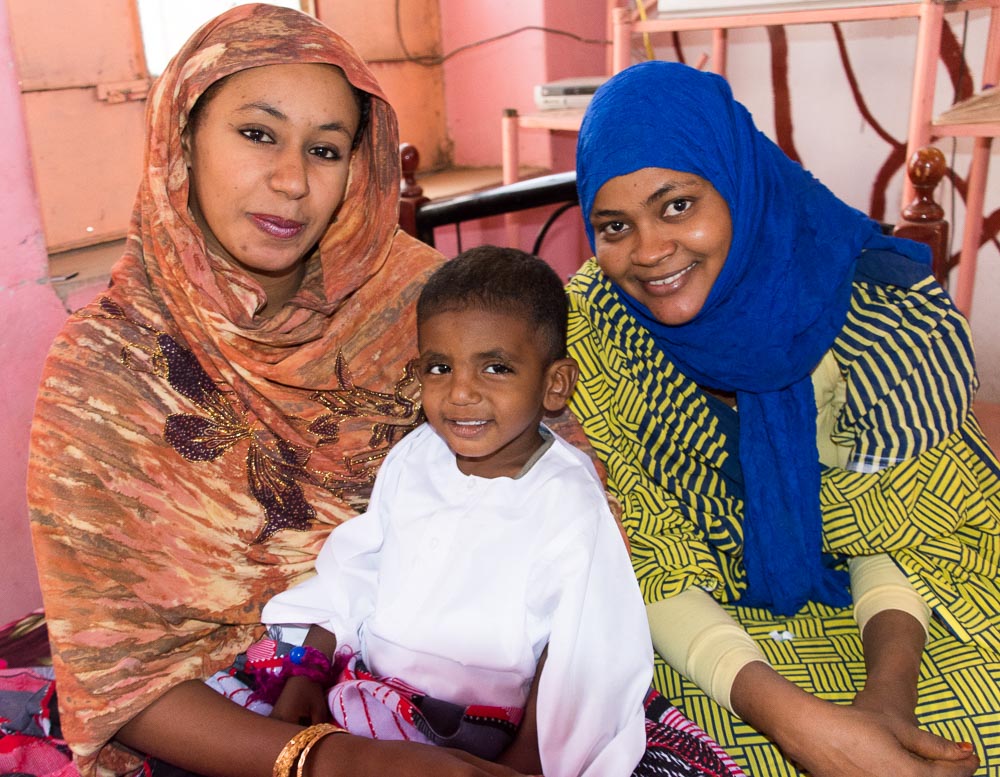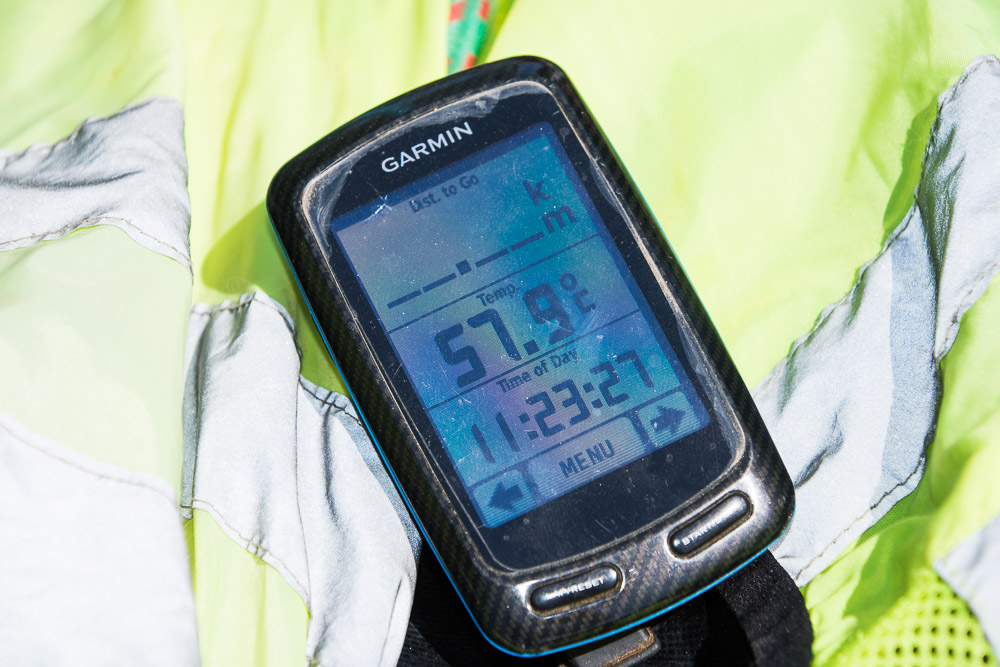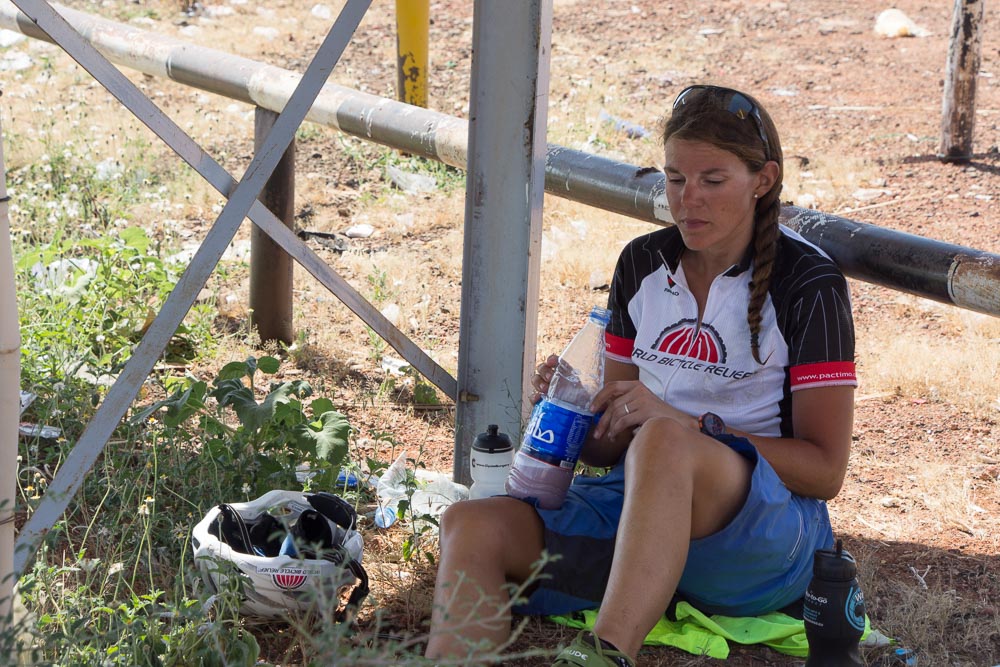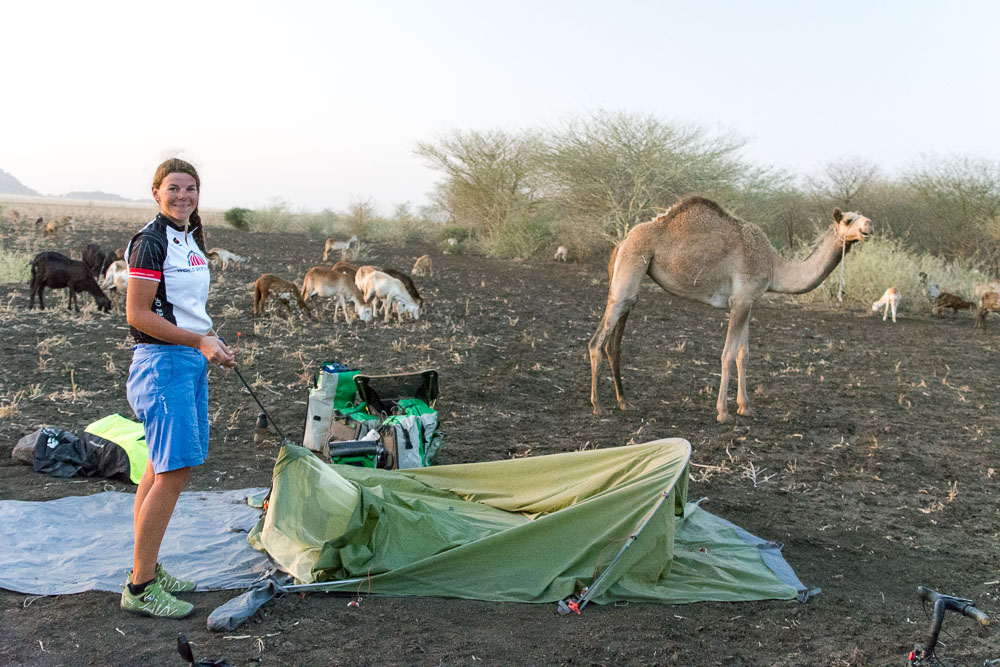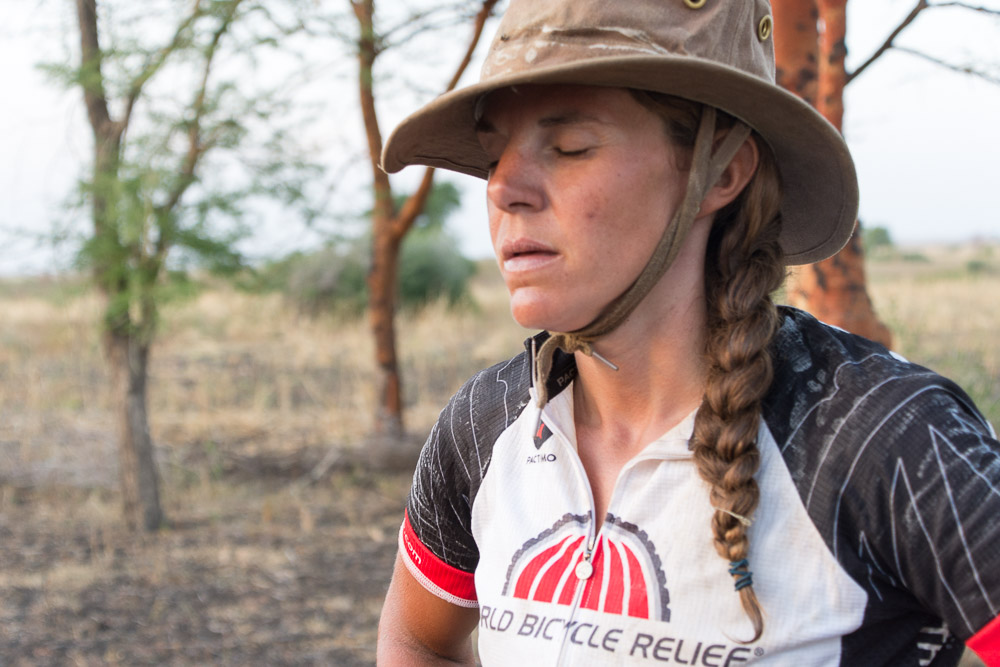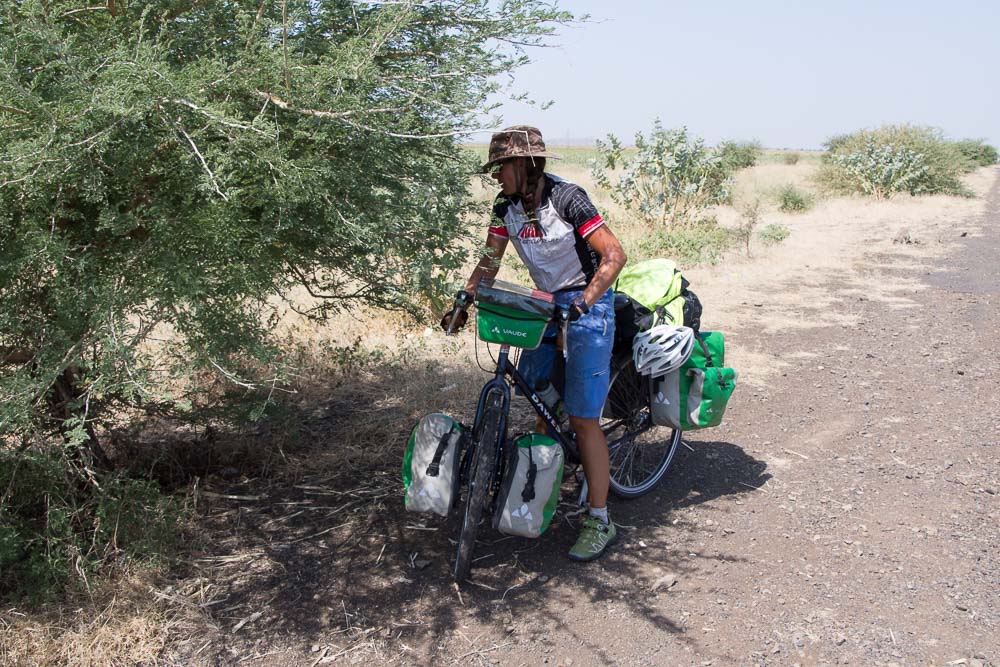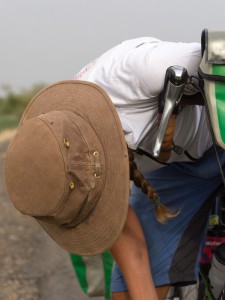Walking back to recovery in the Simien Mountains, Ethiopia
We reached the Sudanese border town of Gallabat at 11am and found shade in the café nearest the border post. The incredibly friendly café owner refused to accept payment for the Cokes we’d plucked from the fridge and he even gave us a couple of bottles of water. We obviously looked in a bad way.
We then went through the border crossing formalities. First we visited the security department where the chap wrote our passport information down. We were then escorted to Sudanese customs where another chap wrote our passport information down in a dusty book. Then, we wheeled our bikes round the corner to another building which housed the Immigration Department. Once we’d filled out a form, handed over photocopies of our passports we received the stamp in our passports allowing us to leave Sudan.
We didn’t do so immediately.
We headed back to the café where we’d intended to spend our last Sudanese pounds. I raided the fridge for bottles of water and drinks for our onward journey but, once again, the café owner refused payment saying we were visitors in his country and he wanted us to leave with a good impression. We were just meters from the border with Ethiopia and it was, yet again, an outstanding last-minute example of the hospitality that we’d experienced throughout Sudan. Although, ironically, when he offered to change money he gave us a horrendous rate.
Once we’d been stamped into Ethiopia the next stop was customs. We were directed to what looked like a bus shelter where a couple of bored looking chaps asked us to empty the contents of our panniers.
The customs post was in a public area and people were milling round. I wanted to ensure the chap was a bone fide customs employee before he started rifling through our things but he couldn’t produce any ID. Instead, he stood up and put on a high vis jacket, insisting that this was sufficient proof that he worked for customs. In return, I reached into my pannier, took out my high vis vest and declared to him that I now worked for customs too. It raised a laugh…and a short delay as he went to find someone more senior to prove that this roadside shack was official customs.
The world changed once we’d crossed the border into the Ethiopian town of Metema.
The dusty high street leading up the hill from the border is lined with seedy bars and shifty looking folk – all looking to make a buck from whomever they could. We cycled slowly up the hill, witnessing a bar brawl on the way and debated whether the hostesses’ main employment was from bar work or employment of a more ‘behind-the-scenes’ nature. We read online that Metema was the centre of the people-smugglng trade.
We’d made the decision to take the bus to Gonder because Emily was unwell. We found the bus station and negotiated room on a bus for 100Birr (£3GBP) per person plus another 50Birr for each of the bikes.
Our trusty steeds were hauled on top of the Toyota HiAce minibus and strapped down with string. After a 2-hour wait for the bus to fill up, we departed Metema and clung on whilst we whizzed through the dramatic countryside towards Gonder – every clonk from the roof making us wince as we envisaged gears, disk brakes and frames being bashed with every pot hole.
If Metema was a shifty introduction to Ethiopia, then Gonder was the complete opposite.
After months cycling in the Muslim world it took a bit of time to get used to the things that we’d once considered ‘normal’. Smiling couples walked hand in hand. People enjoyed cool beers at roadside bars. Restaurants offered full menus with ‘farangi’ food: chips, pizza and spaghetti. The bread was raised…and delicious and the fresh mango juice was everything we had dreamt of whilst cycling in the desert.
The Muslim call to prayer was replaced by full Orthodox Christian services being blasted from the speakers of the nearby church. The Sunday morning service started at 2am and was still going strong at 8am.
Even the time in Ethiopia is different.
We’d read about ‘Ethiopian time’ before we arrived but thought it was something similar to Welsh: talked about but nobody knows anyone who actually speaks it. In fact, Ethiopian time is incredibly logical. The day starts at dawn. An hour after sunrise is 1 O’clock. 2 hours after sunrise is 2 O’Clock and so on until sunset, which is 12 O’clock. We had to make sure that any time given to us was ‘farangi time’ (meaning foreigners’ time).
We took a couple of days in Gonder to let bodies recover. And, with the cooler temperatures, great food on offer and large, comfy beds we were both fit enough for the next challenge: a 4-day trek in the Simien mountains.
We’d considered arranging our trip to the Simiens independently. It’s possible to do so but takes a few days to organize all the requirements: Transport, entrance fees, scout etc. Instead, we opted to let a professional take this pressure off us. And we’re glad we did.
Early in the morning (just as the Orthodox Christian service was finishing!) a minibus rocked up which contained our guide, Desu, a driver, a cook and an assistant cook. We picked up our scout in Debark, an hour’s drive away and then headed up the off road track to the mountains.
It’s a requirement to have a scout accompany any visitors to the park. The scout’s job is to carry a gun and shuffle behind the group for ‘protection’. There’s nothing, actually, to protect against (either people or animals) so it’s widely acknowledged that the park’s insistence on an accompanying scout is for job creation. It transpired our scout was actually a local farmer and scouted to top up his meagre wages – something we were happy to facilitate.
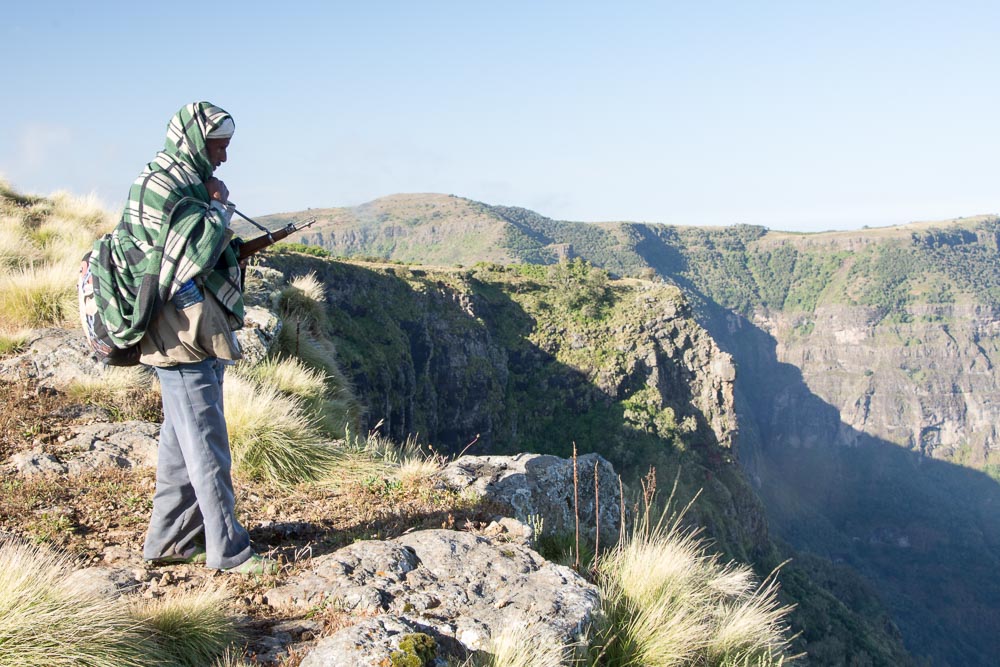
Our scout kept watch over us for four days
We laced up our Zamberlan trail shoes and, over the next 4 days we were treated to views like we’d never seen before. The paths clung perilously close to the cliff tops. And afforded us stunning views across the Ethiopian Highlands. But one small slip could have had us plunge thousands of feet off the sheer cliff face.
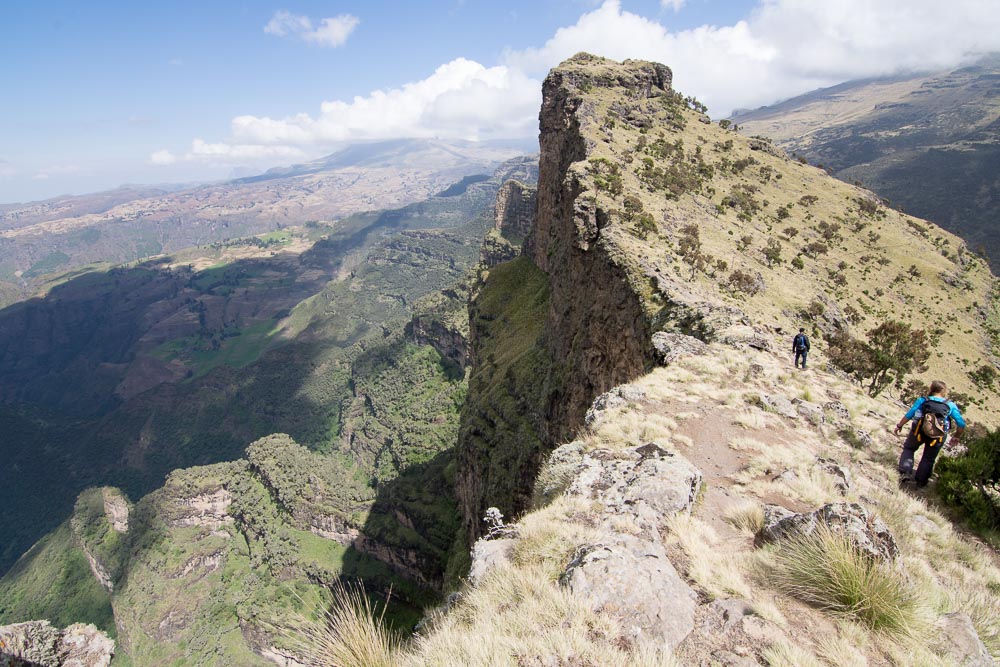
Trekking the Simien mountains: The World’s best ridge walk?
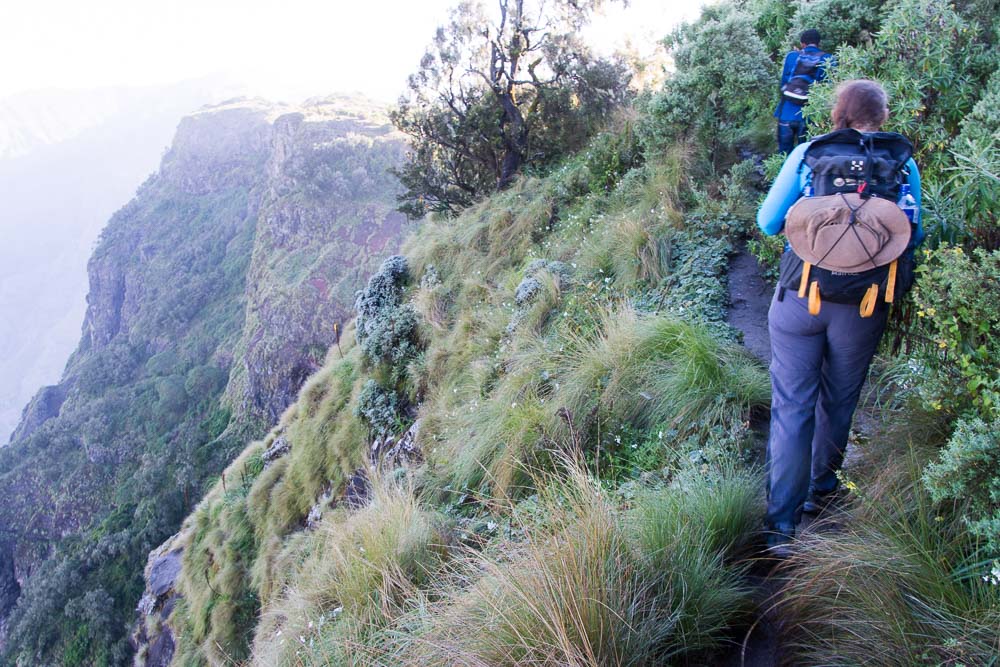
The path clung to the cliff face
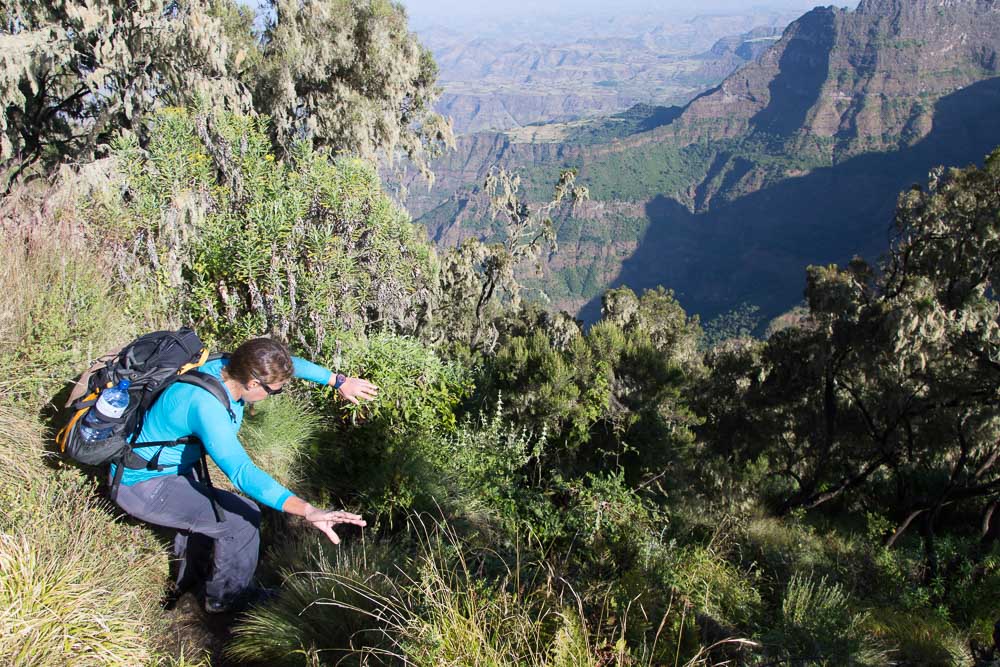
Don’t slip there!
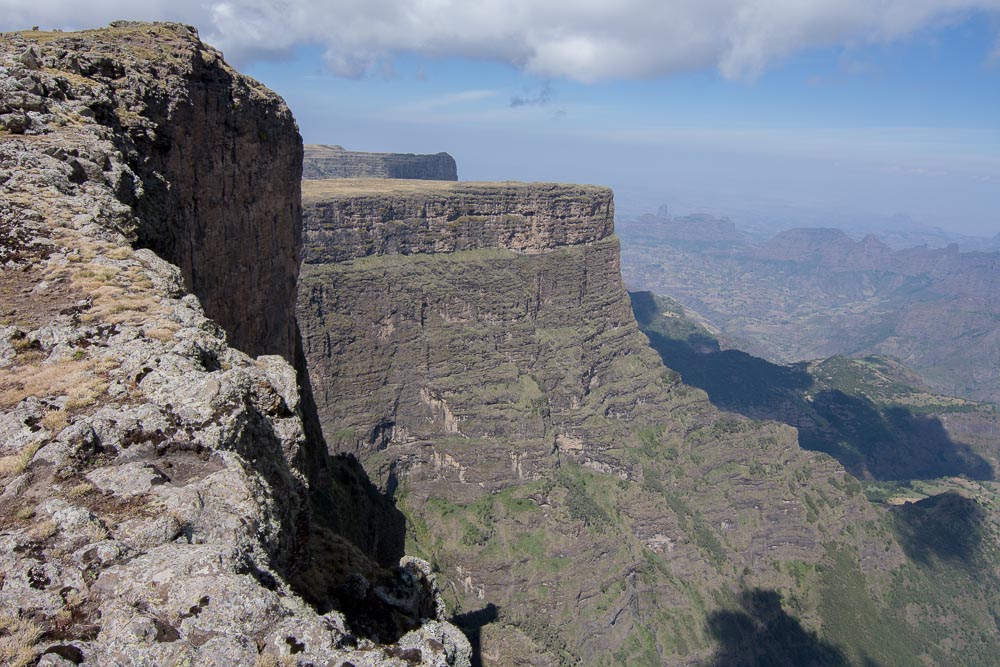
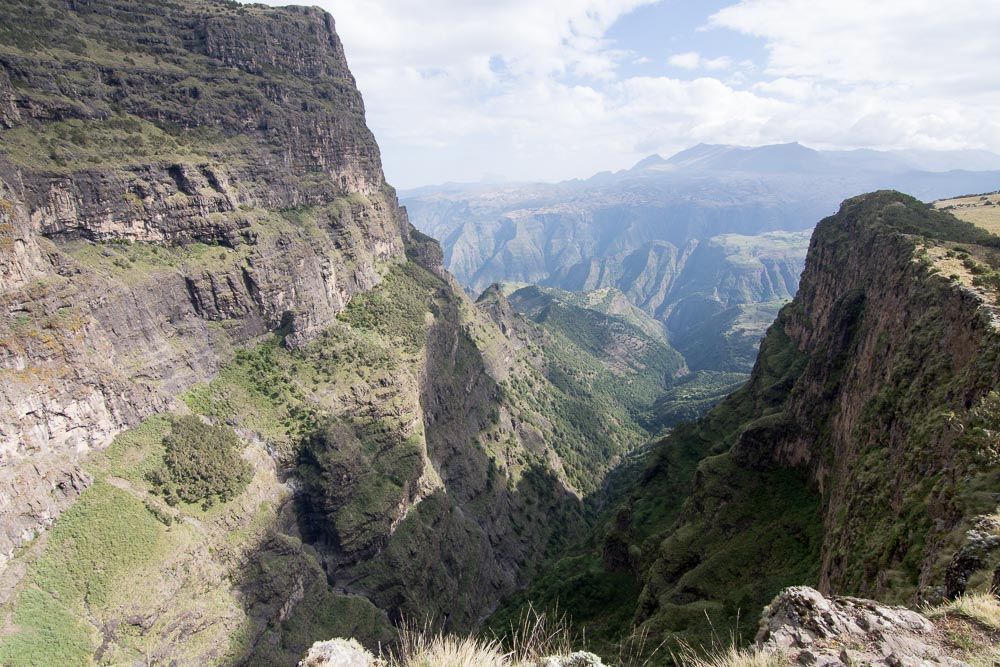
We were lucky to see some amazing wildlife too.
Friendly Gelada monkeys grazed (yes, they eat grass!) on the grassy hillsides. We learnt that, because Gelada monkeys are forever in the seating position as they graze, the females display their fertility through their pink chest plate – unlike other types of monkeys whose bums turn red.
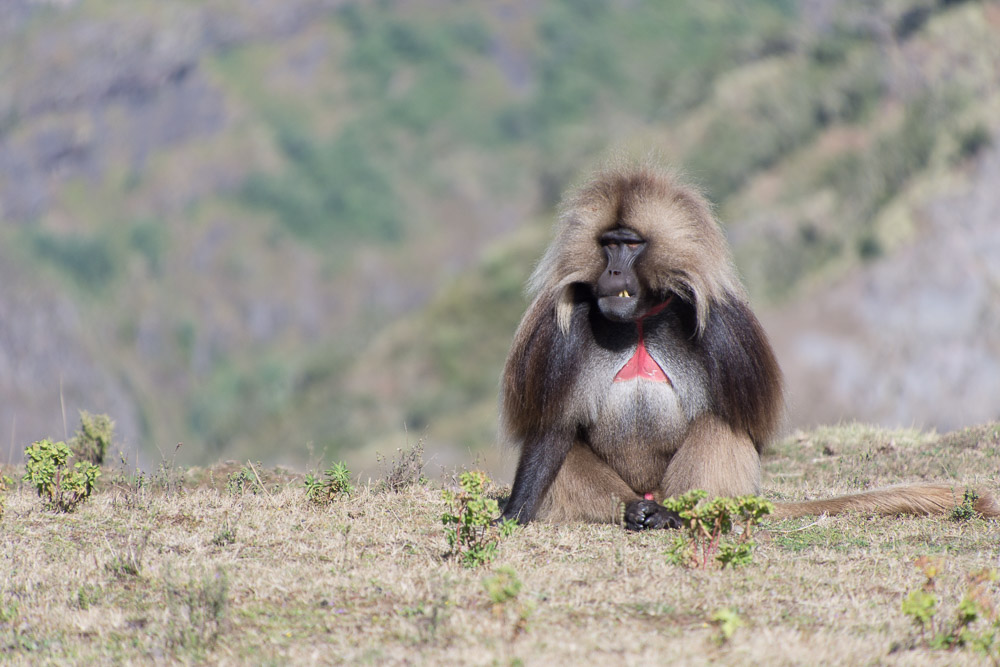
Gelada monkeys grazed on the hillsides
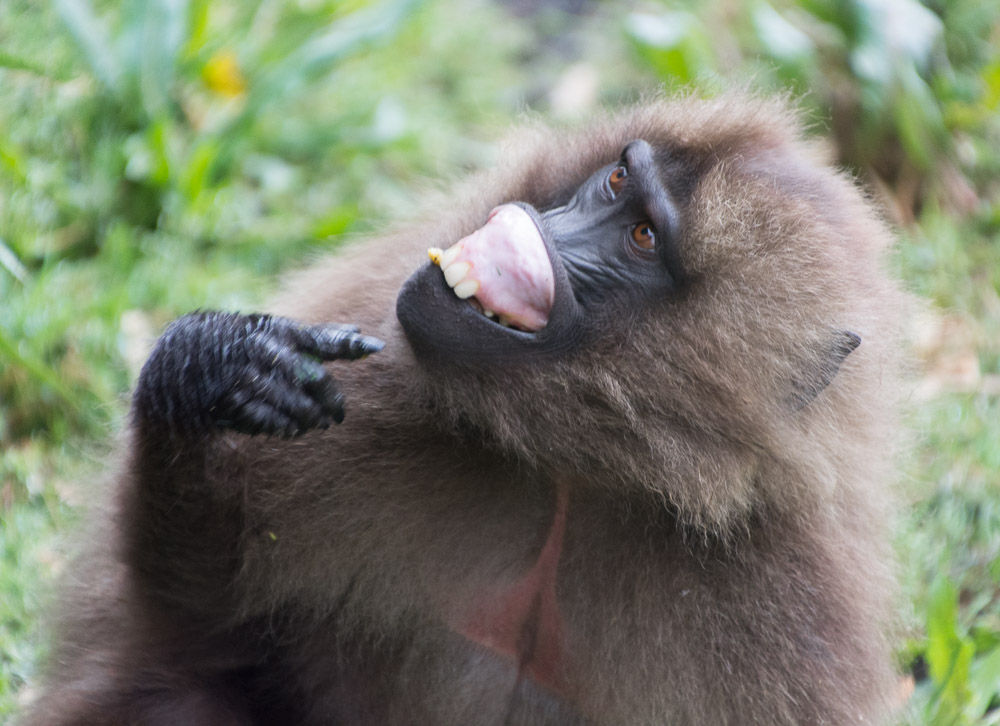
Gelada monkeys have ‘rubber lips’ which they retreat to reveal their teeth when they’re getting tetchy
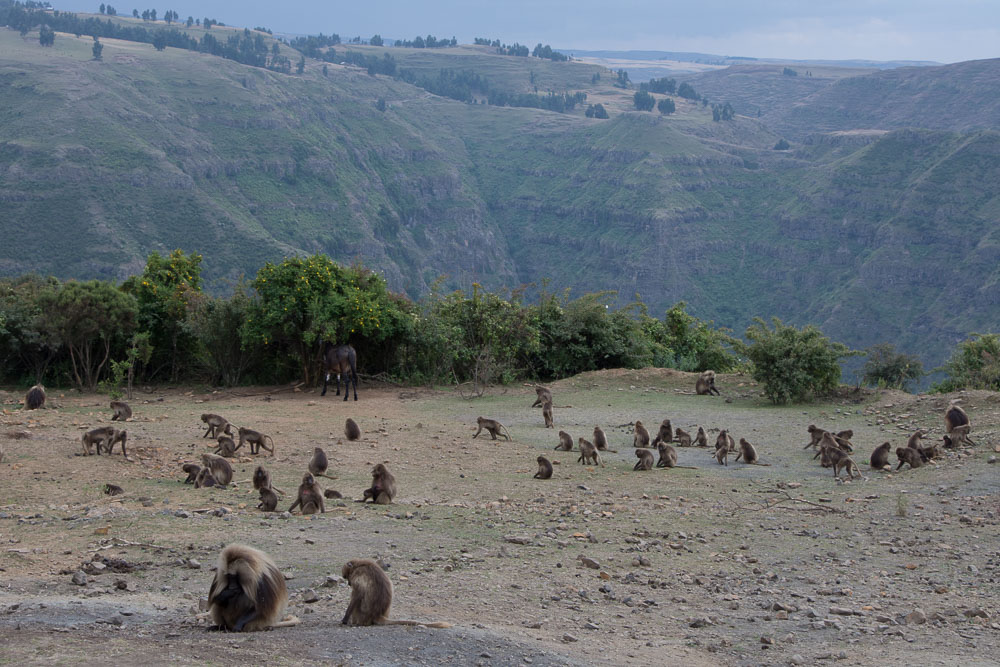
Gelada monkeys roam the hillsides
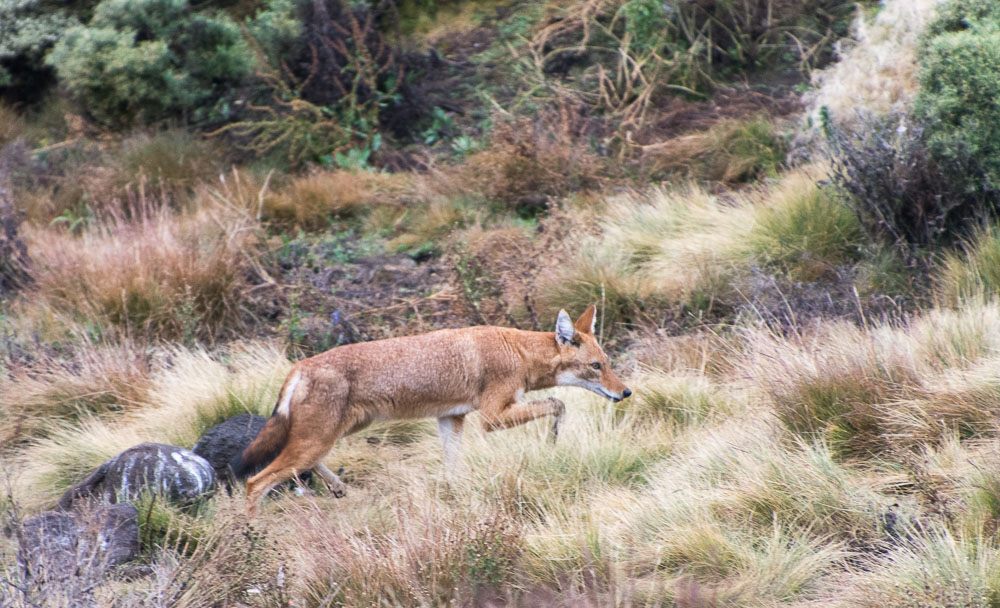
An incredibly rare sighting of an Ethiopian fox hunting for mice
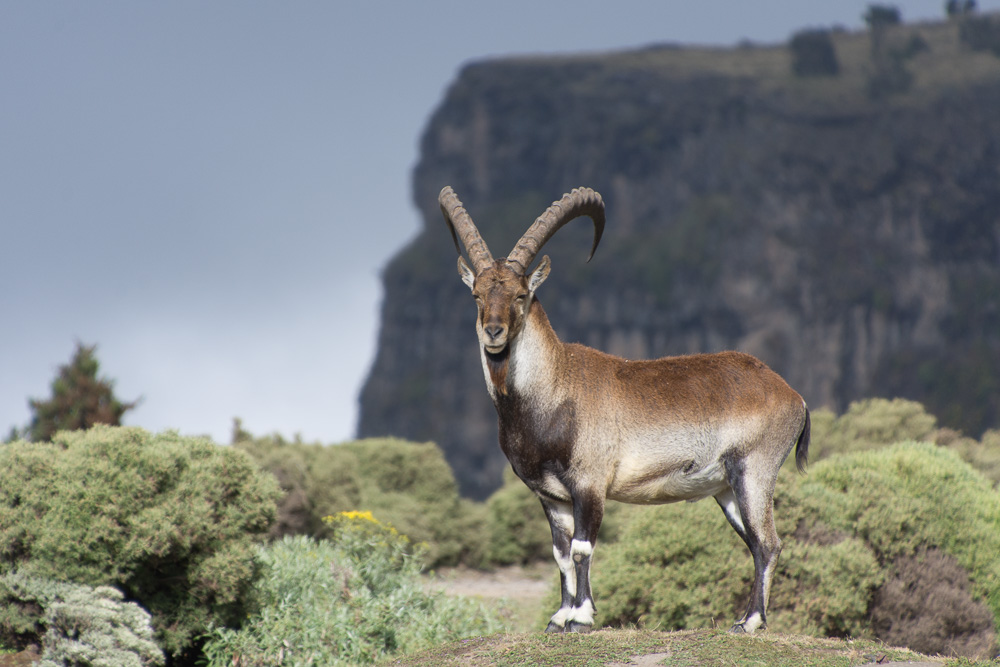
An ibex stands proud against the Simien mountains in Ethiopia
Additionally, we saw several ‘bone-breaker’ vultures. The diet of these huge birds consists of the bones of dead animals. If the bones they find are too big to swallow, they’ll pick them up and drop them from a huge height into the ravine below where they’ll weaken on impact with the rocks far below. They’ll repeat the process until the bones are of an edible size.
After months of pitching our own tent, it was pure luxury for us to arrive at camp after our days’ treks to find the tent pitched and flasks of tea and coffee ready for us. We shared popcorn with the ravens and watched the sunset from our high altitude camps – on the evenings it wasn’t tipping it down. In fact, we experienced our first rain since Romania over 3 months ago!
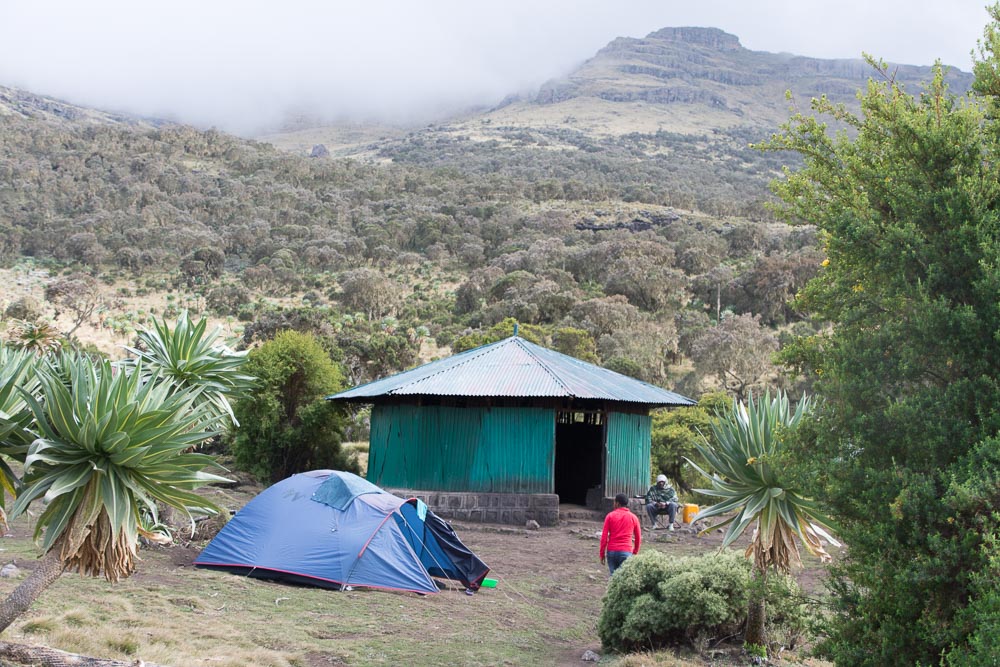
Although we missed the quality and spaciousness of our Vaude tent, we were happy to have a tent pitched for us each night
Our chef and assistant chef worked wonders too. They produced tasty, hearty meals from fresh ingredients. Our chicken meal could not have been fresher. In fact, I volunteered to help the assistant chef ‘prepare’ the live chicken for dinner. I held the feet whilst he used the knife.

Getting ready for a feast by the roaring fire
The temperatures in the Simien Mountains were in complete contrast to the 50-degree heat of the Sudanese deserts from where we’d come. We huddled round the fire to keep warm whilst eating and nighttime temperatures went down to freezing.
Although we were between 3,500 and 4,000 meters, the hiking itself wasn’t too strenuous and, with the aid of great food cooked up by our chef, we were able to get our bodies back to normal, ready for the cycling ahead.
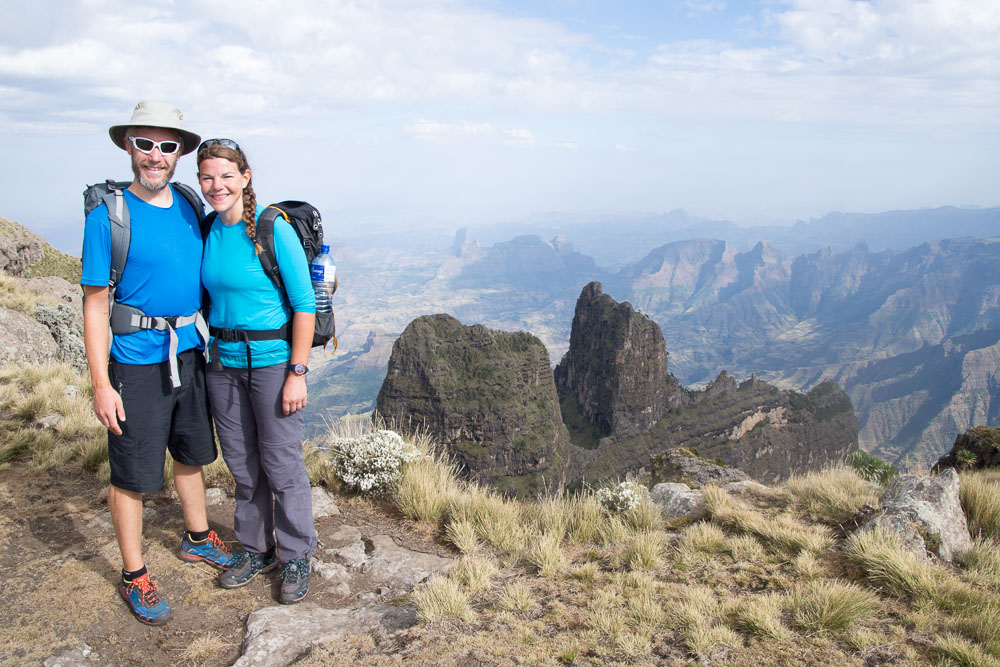
The Simien mountain views were stunning
On our last morning in the mountains we discovered blood spots on our sleeping bag liners and bites on our bodies. Back in Gonder we inspected our sleeping bags to find we’d picked up bed bugs from the bedding that had been provided on the trek. Not content with letting them fester, we’ve delayed our departure from Gonder to get the critters dealt with.
All being well, we’ll be back on the bikes tomorrow (Friday) as we take on the 800km cycle for Addis Ababa. A ride that’ll certainly introduce us to rural Ethiopian life. We just hope we won’t get stoned too much by the small children we’ll encounter: a real hazard of cycling in these parts. Please follow our progress on our live GPS tracker.
Don’t forget to subscribe to our email alerts so you’ll be the first to know when we’ve published a new blog post. We’ll never share your details. Ever.

